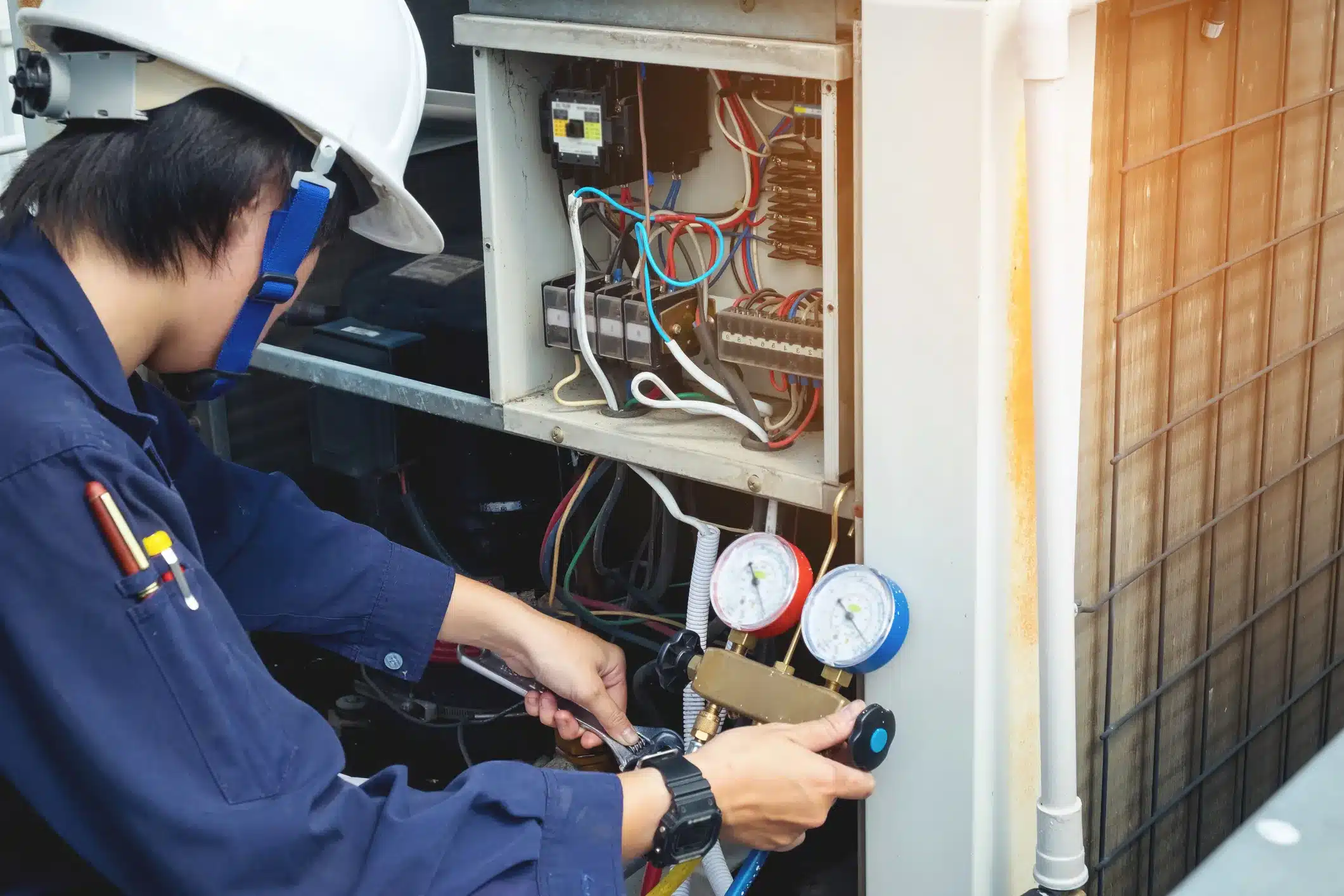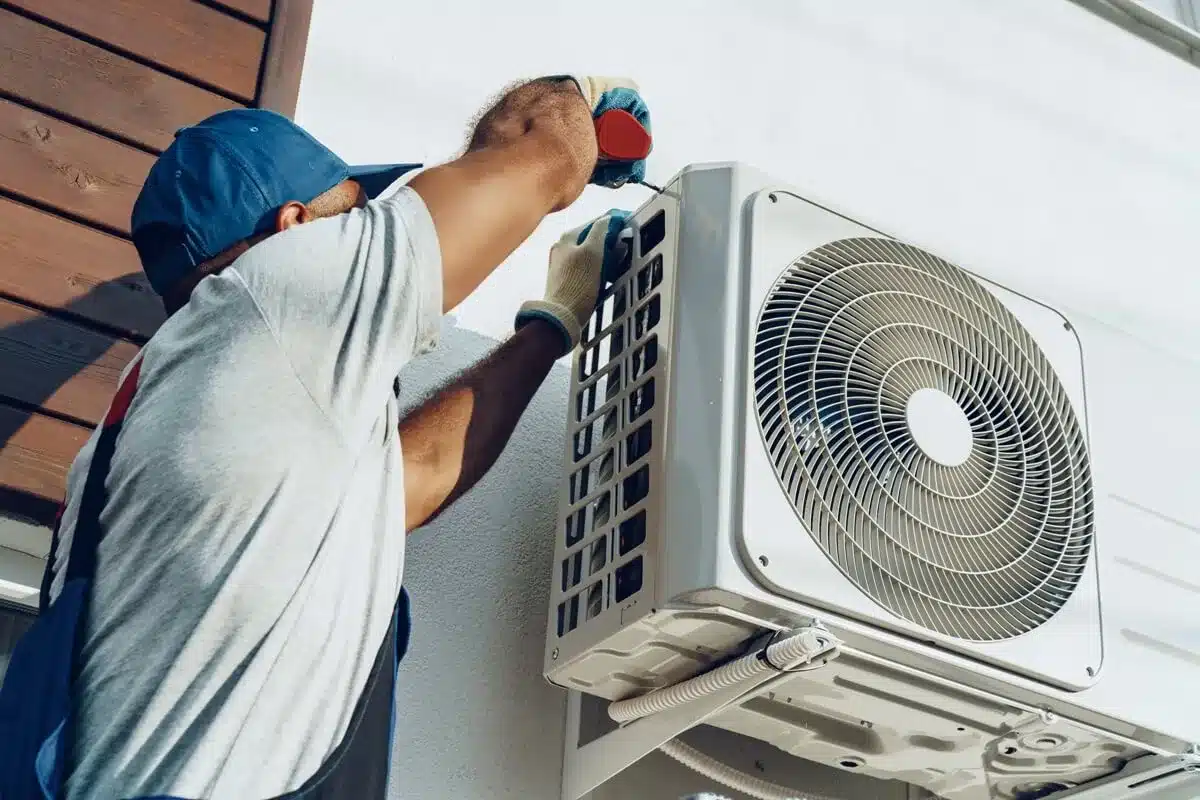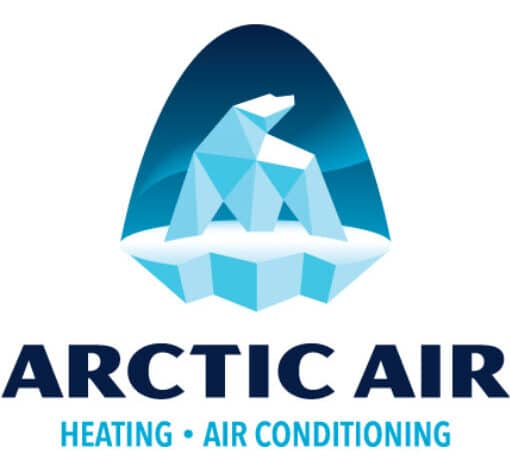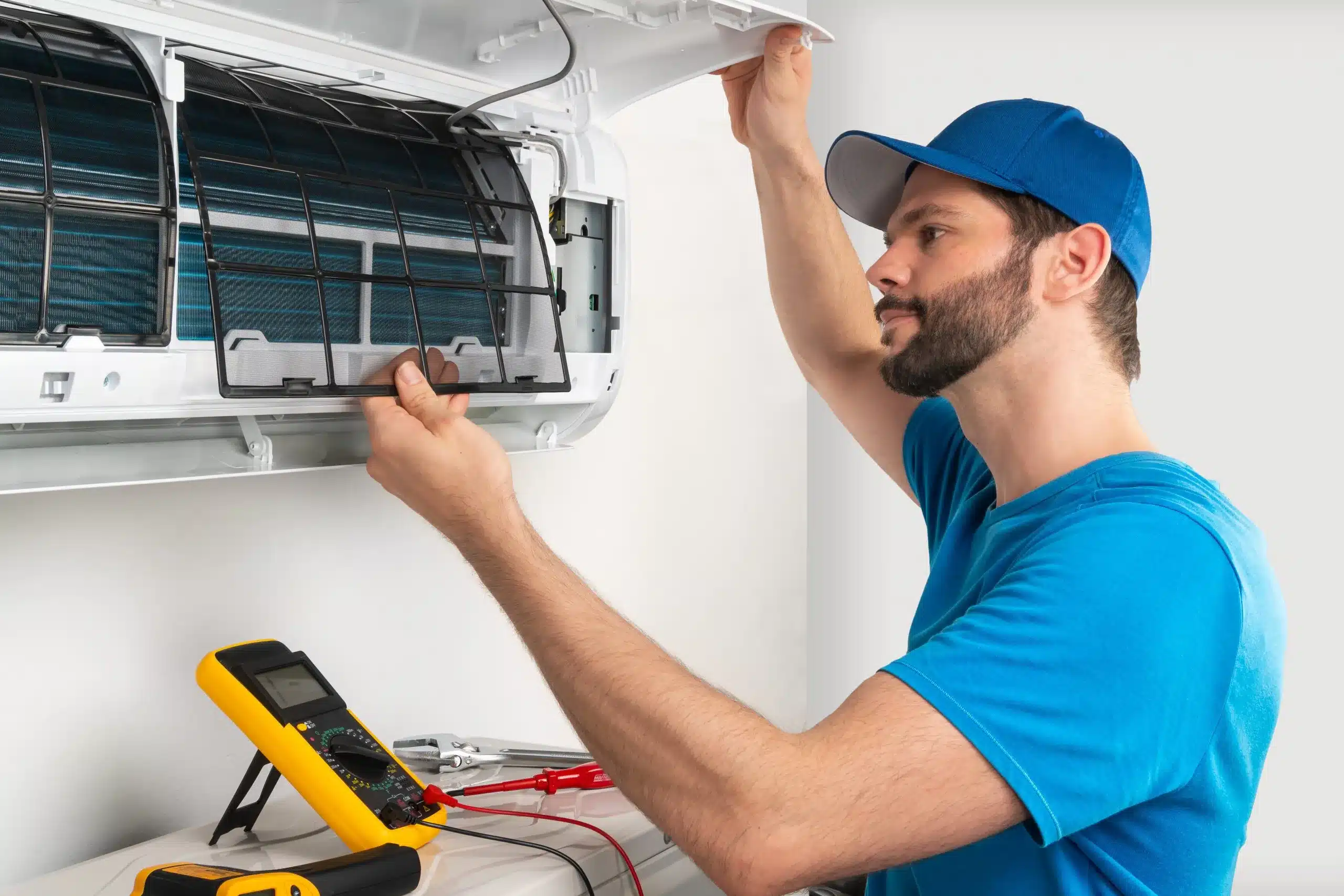How Much Does It Cost to Replace an Air Conditioner?
When the temperature rises to unbearable levels in the summer, you rely on your air conditioner to keep you cool and cozy inside your home. However, just like any other appliance, air conditioners have a finite lifespan, and eventually, the day will come when you need to replace your trusty AC unit. But how much does it cost to replace an air conditioner?
In this comprehensive guide, we’ll explore the factors that influence the cost of replacing an air conditioner, as well as provide insights into HVAC service costs, and provide you with valuable insights into what to expect when it’s time to replace your HVAC system.
The Air Conditioner Replacement Process
Before diving into the specifics of air conditioner replacement costs, it’s essential to have a basic understanding of what the process entails. Replacing an air conditioner typically involves removing the old unit and installing a new one.
This new unit may include the compressor, condenser, evaporator coil, and other components necessary for proper cooling. Additionally, the installation process may require adjustments to your existing ductwork or electrical system to ensure compatibility with the new unit.
Factors Affecting Air Conditioner Replacement Cost
The cost of replacing an air conditioner can vary significantly based on several factors. Here are the key factors that influence the overall expense:
Size and Capacity
The size and cooling capacity of the new air conditioner plays a crucial role in determining the cost. A unit that is too small for your home will struggle to cool adequately, while an oversized unit can lead to inefficiency and higher energy bills. An HVAC professional will perform a load calculation to determine the right size for your home, which will impact the cost.
Energy Efficiency
Investing in an energy-efficient air conditioner can lead to long-term savings on your energy bills. While more efficient units may have a higher upfront cost, they can significantly reduce your monthly cooling expenses over time. Look for units with high SEER (Seasonal Energy Efficiency Ratio) ratings for optimal efficiency.
Installation Complexity
The complexity of the installation process can also affect the cost. If your existing ductwork, electrical system, or other components need modifications or repairs to accommodate the new unit, this will add to the overall expense. Additionally, factors such as accessibility and location can influence installation costs.
Brand and Model
The brand and model of the air conditioner you choose can impact the cost. High-end brands and models with advanced features may come with a premium price tag, while more basic models may be more affordable. It’s essential to strike a balance between your budget and the features you desire.
Type of Air Conditioner
The type of air conditioner you choose will have a substantial impact on the cost of replacement. There are several types of AC units available, including:
– Central Air Conditioner: These are the most common and typically the most expensive type of air conditioner to replace. Central AC systems provide cooling for an entire home and require ductwork.
– Ductless Mini-Split: Ductless systems are more energy-efficient and suitable for cooling specific areas or rooms. They are typically more affordable to install but may still require a significant upfront cost.
– Window or Wall-Mounted Unit: These units are the most budget-friendly option for cooling individual rooms. However, they are not suitable for whole-house cooling and may not be energy-efficient in the long run.

Average Air Conditioner Replacement Cost
While the cost of air conditioner replacement can vary widely, let’s explore some average estimates to give you a rough idea of what to expect:
– Central Air Conditioner Replacement: On average, replacing a central air conditioner can cost between $3,000 to $7,000 or more, depending on the factors mentioned above. High-efficiency models and complex installations can push the cost toward the higher end of the range.
– Ductless Mini-Split Replacement: Replacing a ductless mini-split system is often more affordable, with costs ranging from $2,000 to $5,000. Simpler installations and smaller units typically fall on the lower end of this range.
– Window or Wall-Mounted Unit Replacement: Replacing a window or wall-mounted unit is the most budget-friendly option, with costs ranging from $500 to $2,500. However, keep in mind that these units are not suitable for whole-house cooling.
It’s important to note that these estimates are rough averages and can vary significantly based on your specific circumstances and location.
Additional Costs to Consider
When budgeting for an AC replacement, it’s essential to consider additional costs that may arise during the process:
Removal and Disposal of Old Unit
The cost of removing and properly disposing of your old air conditioner should be factored into the total replacement cost. Some HVAC contractors include this service in their quotes, while others may charge an additional fee.
Ductwork Modifications
If your ductwork requires modifications or repairs to accommodate the new unit, this can add to the overall cost. Leaky or poorly insulated ducts can reduce the efficiency of your new air conditioner.
Electrical Work
In some cases, your electrical system may need upgrades or modifications to support the new air conditioner. This can include wiring, circuit breakers, or electrical panels.
Permits and Inspection Fees
Local building codes may require permits and inspections for AC replacement projects. Be sure to budget for any associated fees.
Maintenance and Extended Warranty
While not part of the initial replacement cost, it’s wise to consider ongoing maintenance and an extended warranty for your new air conditioner. Regular maintenance can prolong the life of your unit and keep it running efficiently.

Ways to Save on Air Conditioner Replacement
While air conditioner replacement can be a significant investment, there are ways to reduce costs without compromising on quality or performance:
Explore Financing Options
Many HVAC companies have a financing option policy that can help you pay for the replacement in installments, including ourselves at Arctic Air! This makes it easier for you to afford the expenses associated with replacement.
Take Advantage of Rebates and Incentives
Check for local and federal incentives, rebates, or tax credits for installing energy-efficient air conditioning systems. These can help offset the initial cost.
Consider DIY for Simple Replacements
If you have the necessary skills and experience, you may be able to save on installation costs by tackling a simpler replacement project yourself. However, this is not recommended for complex installations.
Regular Maintenance
Properly maintaining your existing replacement air conditioner can extend its lifespan, delaying the need for replacement.
Conclusion
The cost of replacing an air conditioner can vary widely depending on factors such as the type of unit, size, energy efficiency, installation complexity, brand, and location. On average, you can expect to invest anywhere from a few thousand dollars to several thousand dollars for a new air conditioning system.
When faced with the need for an air conditioner replacement, it’s essential to do your research, obtain multiple quotes, and work with a reputable HVAC contractor. Investing in a quality air conditioner and professional installation will ensure your home remains cool and comfortable for a long time.
Contact Arctic Air for Complete HVAC or AC Repair Services in Lancaster CA
When it comes to reliable HVAC and AC repair services in Lancaster, look no further than Arctic Air Lancaster. Our experienced team is dedicated to providing top-notch air conditioner services, ensuring your home stays cool and comfortable year-round. Whether you need AC repair, maintenance, or a complete replacement, we’ve got you covered.
Contact Arctic Air Lancaster today for prompt and professional assistance with all your HVAC needs. Your comfort is our priority.


